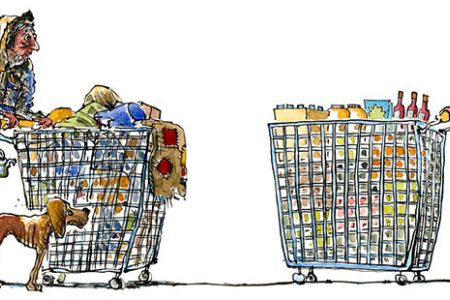Competent or in control – how to be successful?
How do children grow up to become socially adaptive and skilled adults? What factors contribute to their well-being? Read on for a sneak peek at findings of the L-CID study!
Back in 2015 I published a blog on our plans for a large longitudinal twin study at Leiden University. There were two important aims in this study, known as the Leiden Consortium on Individual Development: I) to investigate how children develop social competence and behavioral control, and II) to explore why some children are more responsive to changes in their social environment than others. Now, after eight years of data collection, we have included almost 1000 children and their parents in the study. They joined our study for six years of lab and home visits, and participated in numerous observational, experimental, and survey measures, as well as brain scans (i.e., EEG and MRI).
Why social competence and behavioral control?
You might wonder why we focus specifically on social competence and behavioral control. These two constructs are important contributors to a person’s social skills, which in turn contribute to their ability to develop social relationships. Think for example about a date with a friend – you are meeting for tea and cakes, but there is only one slice of cake left. You both want the cake. If you can realize that your friend wants the cake (social competence) while also regulating your own impulses (behavioral control), you might propose sharing. Friendship saved, and you both get cake!
How to increase your behavioral control
One of the oldest discussions in the field of psychology is whether our behavior is innate (nature) or learned (nurture). In our study we tried to tackle this issue this by investigating whether social competence and behavioral control were more driven by genetic factors (nature) or by environmental factors (nurture). For example, in our youngest participants we found that behavioral control is more influenced by the environment than by genetics. To be specific, we found that parents who show more sensitive discipline (such as explaining rules and providing distraction in stressful situations) have a positive effect on their children’s behavioral control: these kids were better able to control their behavior in an emotional situation. We also found out that parental sensitive discipline can be improved if parents participate in an intervention aimed at positive parenting. We still have to see whether this means that this intervention can also increase children’s behavioral control through increasing parental sensitive discipline, but these first findings are promising and show how important the environment is for children’s behavioral control.
How to become more socially competent
Similarly to behavioral control, we found that environmental factors are also important for social competence. For example, how children thought about their own social skills was influenced by environmental influences. We also found that brain regions that are important for thinking about yourself and about others (both important for social competence) were also influenced by environmental factors. However, when we looked at how nice children are to other children (one example of social competence) we noticed that genetic factors influences also played a role! Finally, we looked at how children reacted to negative evaluation. As you might imagine, an initial response might be to get angry or sad, but children showed large differences in how they responded to negative evaluation. Both genetics and environment could explain why children showed differences in responding to negative evaluation. For now we can therefore conclude that both nature and nurture play an important role in shaping our ability to deal with a social environment.
Effects on a child’s well-being
But how do social competence and behavioral control contribute together to a child’s well-being? We looked into this specifically by investigating whether social competence is also associated with showing aggressive behavior. As you can imagine, children who show more aggressive behavior are thought to be less in control of their behavior. We discovered that children who were more socially competent did not necessarily show more or less aggressive behavior. However, children who were both more socially competent and more aggressive showed no increase in problem behavior over time. This shows that both social competence and the ability to control your behavior can result in better outcomes for children: better friendships, enhanced well-being, and possibly, more cake.
Future steps
Now that our data collection is completed, we can finally start looking into longitudinal trajectories of social competence and behavioral control, and maybe even find out what factors in childhood can predict well-being in adolescence! We will also work towards sharing our data and communicating our findings to the broader public (for example see our videocontribution to Weekend van de Wetenschap).
We want to celebrate our innovative study and all our promising plans with an exciting scientific conference in Leiden onMarch 22nd, as part of the year-long scientific festival Leiden2022. Interested in joining us in person or via livestream? Read more about the program here, and register here!





